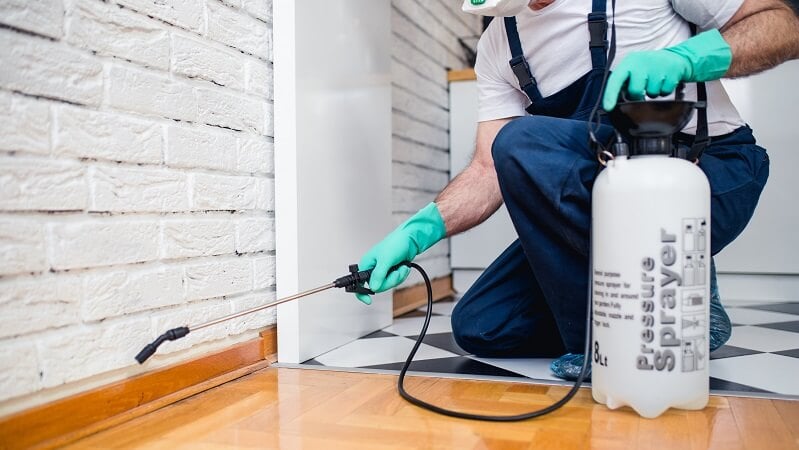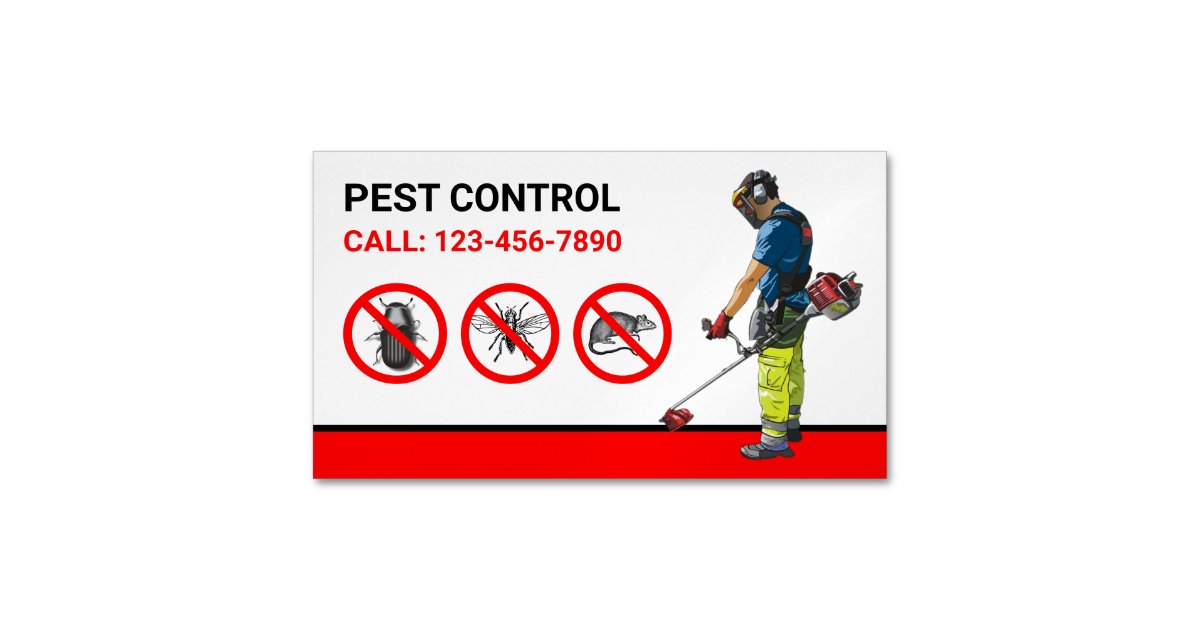Pest Control Clovis Solutions: Professional Provider at Your Front door
Pest Control Clovis Solutions: Professional Provider at Your Front door
Blog Article
Understanding the Numerous Methods to Insect Control: A Comprehensive Overview

Natural Insect Control Techniques
Utilizing green strategies such as buddy planting and organic pest control is important for properly managing pests in agricultural setups. Friend planting involves expanding various crops in distance to deter parasites, improve nutrient uptake, and improve total crop health.
Biological pest control includes introducing all-natural predators or virus to manage pest populaces. Ladybugs, for circumstances, feed upon aphids, controlling their numbers without the need for chemical pesticides. Another instance is using Bacillus thuringiensis (Bt), a microorganism that targets certain insect pests while being safe to humans, pets, and valuable pests.
These environment-friendly methods not just reduce the dependence on artificial pesticides yet also aid protect biodiversity and dirt health. By integrating all-natural insect control approaches right into agricultural techniques, farmers can achieve sustainable parasite management while lessening adverse effect on the environment.

Chemical Pest Control Solutions
Along with all-natural parasite control methods, the usage of chemical bug control solutions plays a considerable duty in properly managing pest populations in agricultural atmospheres. Chemical parasite control remedies are formulated to target particular pests that may trigger considerable damage to crops. These solutions typically consist of artificial chemicals that are developed to remove insects rapidly and effectively.
One of the essential advantages of chemical insect control services is their efficiency in regulating pest invasions widespread. Farmers can use these remedies using various methods such as spraying, fumigation, or seed treatment to safeguard their crops from damaging bugs, weeds, and diseases. Additionally, chemical pest control services are fairly easy to apply and can provide quick outcomes, assisting farmers protect their yields and decrease financial losses.
Nonetheless, it is necessary to utilize chemical pest control options sensibly to minimize prospective negative influences on the atmosphere, non-target organisms, and human wellness. Proper application strategies, adherence to security standards, and routine surveillance are important to ensure the liable usage of chemical bug control options in agricultural methods.
Organic Insect Control Approaches
Organic insect control comes close to leverage all-natural predators or microorganisms to take care of insect populaces in agricultural settings effectively. This technique supplies a green and sustainable solution to pest administration, lowering the reliance on synthetic chemicals and decreasing harm to the environment. One typical organic control strategy is the introduction of natural opponents, such as ladybugs or parasitical wasps, to target specific insects. These killers prey on the pests, helping to manage their populations naturally - pest control clovis.
One more biological control approach includes using virus like viruses, bacteria, or fungis to infect and kill pests. In general, biological pest control strategies supply a lasting and targeted option to pest monitoring in agriculture.
Integrated Bug Management (IPM)
Integrated Get the facts Parasite Management (IPM) is an extensive approach that integrates numerous insect control approaches to efficiently take care of and reduce pest populaces in farming systems. IPM concentrates on long-lasting avoidance of pests with a mix of biological, cultural, physical, and chemical control approaches. By incorporating these different techniques, IPM intends to decrease dependence on chemical pesticides, reduce ecological impact, and promote sustainable parasite management practices.
One secret facet of IPM is making use of biological controls such as all-natural killers, parasites, and pathogens to control bug populaces. This method takes advantage of the power of nature to keep an equilibrium in between parasites and their natural enemies without triggering damage to the atmosphere.
In addition, IPM entails social practices like crop rotation, habitat, and sanitation manipulation to produce undesirable problems for bugs and interrupt their life cycles. Physical controls such as obstacles, composts, and catches are additionally used to stop bug problems.
Mechanical and Physical Parasite Control Strategies
Making use of non-chemical techniques, such as mechanical and physical insect control techniques, is a critical facet of detailed insect management strategies, building on the structure of Integrated Insect Management's all natural description technique. Mechanical parasite control includes using physical barriers or traps to avoid parasites from accessing and harming crops or frameworks. This technique can include methods like installing displays on windows, using row covers in farming, or utilizing sticky catches to catch pests.
Physical bug control methods, on the other hand, emphasis on directly eliminating bugs through physical methods. Using warm therapies to remove bed bugs or vacuuming up pests like spiders or ants can be reliable means to handle invasions without the usage of chemicals. By incorporating these mechanical and physical pest control techniques right into an Integrated Pest Administration strategy, specialists and individuals can minimize dependence on pesticides while still efficiently reducing and taking care of pest populaces damage.
Final Thought

In addition to all-natural bug control methods, the utilization of chemical bug control services plays a significant duty in successfully managing pest populaces in agricultural settings.One of the key advantages of chemical parasite control services is their efficiency in managing parasite invasions on a large range.Integrated Insect Monitoring (IPM) is a detailed approach that integrates numerous pest control approaches to efficiently take care of and reduce pest populaces in agricultural systems.Making use of non-chemical methods, such as physical and mechanical pest control methods, is an essential element of comprehensive Check Out Your URL insect monitoring techniques, developing upon the structure of Integrated Insect Administration's all natural method. By including these physical and mechanical insect control strategies into an Integrated Parasite Management plan, people and professionals can lower dependence on pesticides while still efficiently reducing and handling pest populaces damages.
Report this page